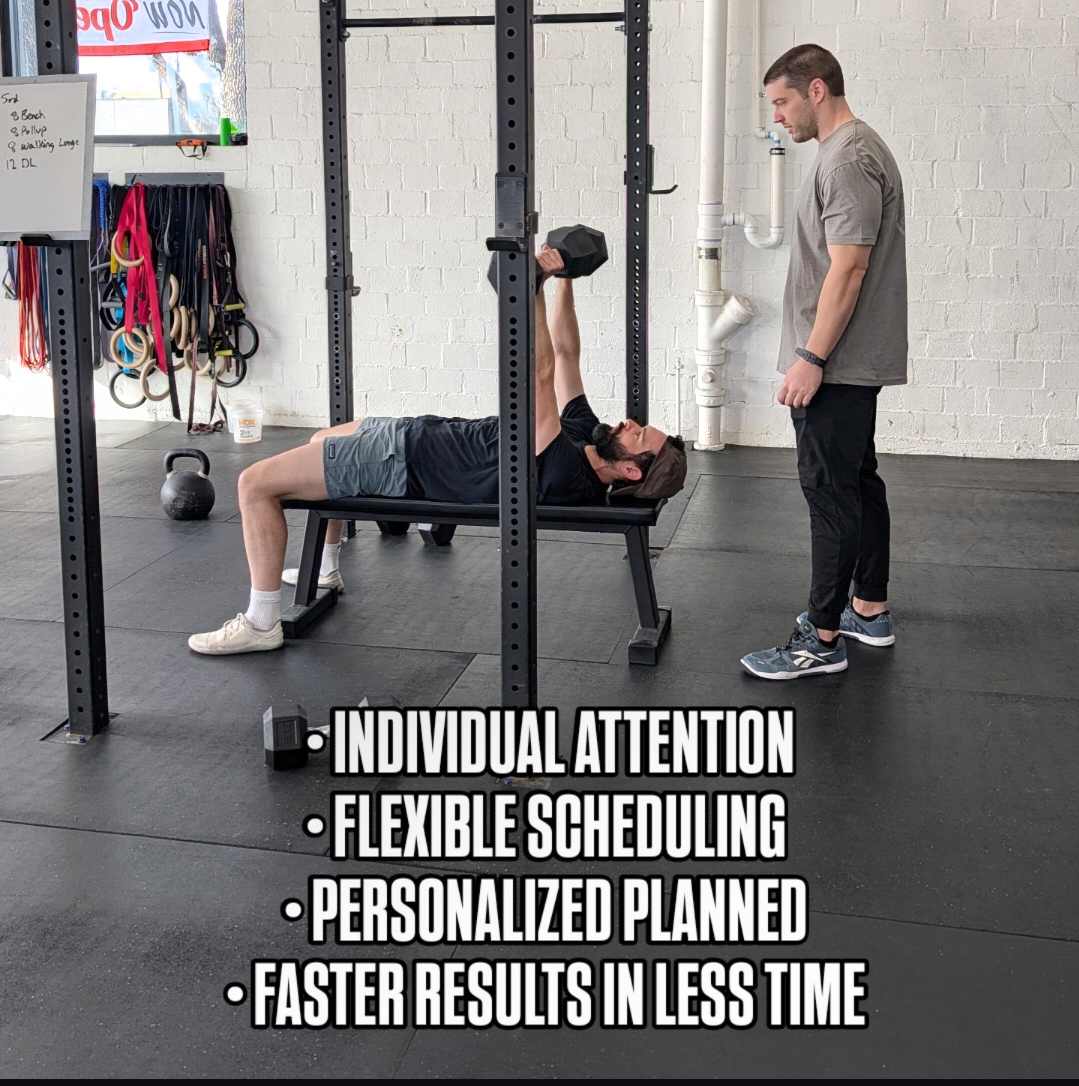By clicking “Accept All Cookies”, you agree to the storing of cookies on your device to enhance site navigation, analyze site usage, and assist in our marketing efforts. View our Privacy Policy for more information.
Why You’re Not Too Advanced for Coaching
Addressing the common misconception that someone is too advanced and wouldn't benefit from coaching.
By
August 13, 2025

Why You’re Not Too Advanced for Personal Training
Often when doing an intro with people that have spent time working out, I'll hear something along the lines of:
"I was at (insert gym franchise) for years."
"I've been working out for X years and know my way around the gym."
It sounds confident, but I would can it arrogance since usually they are wrong. As they are running through the first session, I have yet to see anyone that has good movement on each of the movements. This issue is only highlighted as they continue through our sessions and I a variety of movements.
If you look at elite athletes, people at the absolute top of their sport, they all have coaches. Michael Jordan didn’t say, “I’ve been playing basketball for years, I think I’ve got it from here.” He had a team of coaches breaking down his performance, pushing him further, and correcting the smallest details that could make the difference between winning and losing. Adding a strength program was something he said made the difference in beating teams that always seemed to edge them out. Also, watch The Last Dance on Netflix if you haven't.
But here’s the truth:
The more advanced you are, the more important good coaching becomes.
Not all experience is value, quality experience.
Beginners Get Global Cues. Advanced Lifters Need Nuance.
When you’re new, personal training focuses on big, global corrections:
- Keep your back straight.
- Don’t let your knees cave.
- Maintain control of the weight.
These cues are important, but they’re broad. Most beginners can make big improvements quickly just by following these basics.
If you’ve been training for a while, though, those easy fixes are gone. Progress is harder to come by. And technique errors become harder to spot because they’re subtle. Maybe your squat depth looks fine, but your pelvic alignment is slightly off, which could cause back or knee pain months down the road. Maybe your deadlift is strong, but set up is off which causes your bar to track inefficiently, leaving pounds of strength on the table.
Too many potential examples to list for more complex lifts, like a snatch. But you definitely need help.
These aren’t things you can always feel yourself. They’re things a trained, watchful eye catches before they become a problem.
Overconfidence Can Lead to Overuse
One of the most common traps for experienced lifters is thinking, “I’ve been doing this for years.” and continue with the same less-than-ideal movement.
That’s exactly how overuse injuries happen.
The more advanced you are, the heavier you lift, and the smaller the margin for error. Poor bar path, uneven muscle recruitment, or pushing volume without strategic recovery can sneak up on you, not because you’re reckless, but because the body will tolerate bad movement patterns for a while before it says no more.
A coach can spot these issues early and make the small programming or technique adjustments that keep you training hard without breaking down. Unless you are convinced you do the movement perfectly and can't be helped. You see the arrogance now?
You May Have Gotten Bad Information From Your Previous Trainer
This one is especially frustrating. You did what you should, reached out for help to improve yourself, and someone that did not do their due diligence ran you through a program. The tough part is you might have even liked them as a person. But that doesn't mean they gave you the best technique coaching available.
This is way more common than people want believe. But if I can immediately see the loss in spine integrity when you initiate a squat, they failed you.
If they didn't teach you the proper way to finish off a deadlift, they failed you.
I have unfortunately come up again a ridiculous amount of these scenarios where I am getting to undo this. Part of the battle is correcting an engrained movement habit, and the other is breaking the news to you that the trainer you previously had wasn't all knowing.
Some people struggle to swallow this pill and want to keep doing what someone they no longer work with told them. Some are coachable and can immediately feel the difference.
Be the latter.
Coaching Isn’t Just About Teaching The Basics. It’s About Advancing From Wherever You Are
If you’re truly advanced, the question isn’t “Do I know what I’m doing?” or "Should I just do what I did before?"
It’s “Am I squeezing every ounce of potential out of my training?”
- Could your squat be 20 pounds heavier with a minor change in setup?
- Could your recovery be faster with a smarter progression plan?
- Could a different accessory exercise fix the sticking point you’ve had for months?
- Could approach strength in a different manner better than trying to repeat old programs? (Yes, read up on accomodtion)
These are the kinds of things a good Personal Trainer brings to the table, the refinements that take years off your trial-and-error process.
The Bottom Line
If you think you’re too advanced for coaching, you’re looking at it backwards.
The more experienced you are, the more valuable high-level feedback becomes.
Beginners need direction.
Intermediate lifters need structure.
Advanced lifters need precision.
Even the best in the world have someone watching their back — literally and figuratively — to keep them progressing, efficient, and injury-free.
If you want to keep getting better, not just keep doing what you’ve always done, coaching isn’t a step backwards. It’s the smartest move you can make.





